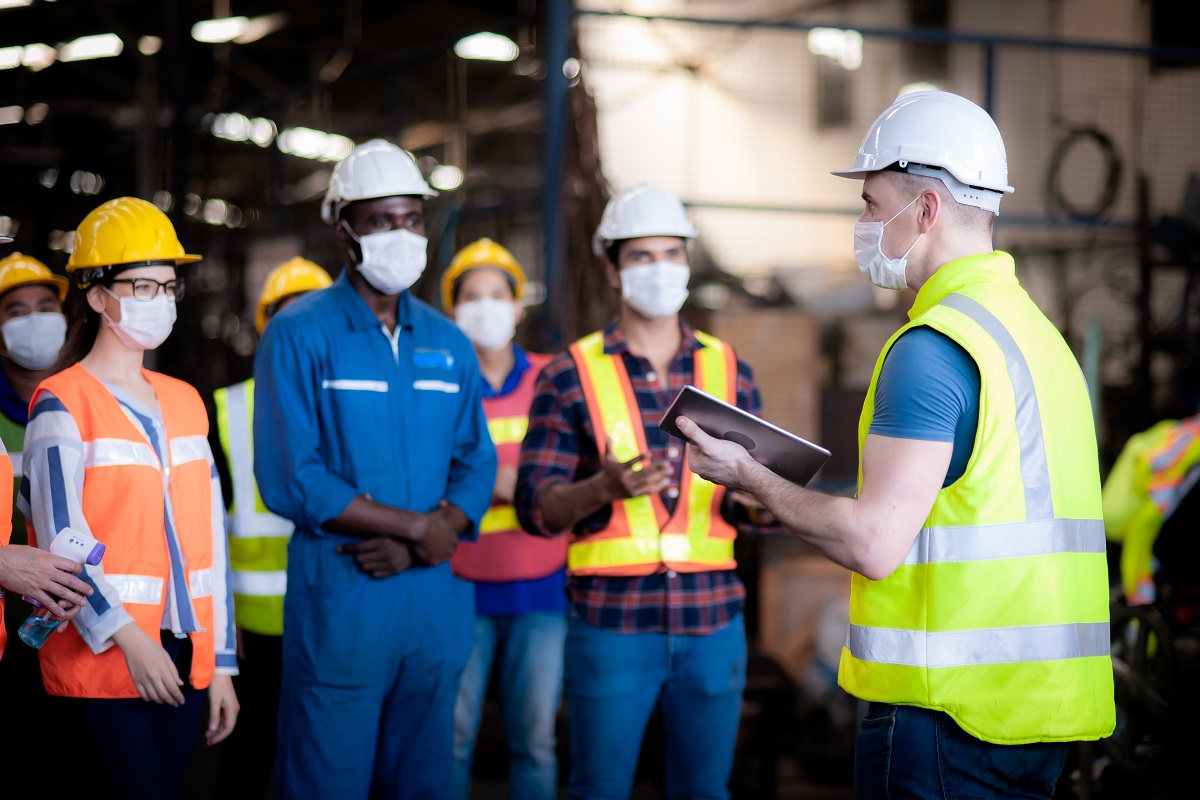On May 14, the National Safety Council (NSC) expressed cautious support for updated COVID-19 recommendations for fully vaccinated people from the Centers for Disease Control and Prevention (CDC). The CDC stated on May 13 that fully vaccinated people no longer need to wear a mask or maintain physical distance from others in any indoor or outdoor setting except where required by federal, state, local, tribal, or territorial laws, rules, and regulations or local business and workplace guidance.
The CDC considers people fully vaccinated when it has been 2 weeks after their second dose of the 2-dose Pfizer or Moderna vaccines or 2 weeks after the single-dose Johnson & Johnson vaccine.
The NSC cautioned employers trying to manage the safety of a partially vaccinated workforce to take a risk-based approach for their specific workplace. Employers must be prepared to verify the vaccination status of employees, according to the NSC, while complying with federal, state, and local employee privacy laws and regulations.
Earlier in the week, the NSC called on employers to support U.S. vaccination efforts as the best method for returning to a safe and productive work environment free from masks and social distancing.
“It’s clear employers can play a direct role in helping to encourage vaccine uptake, especially if they deploy policies and approaches that are backed by public health research,” NSC President and CEO Lorraine Martin said in a statement.
The NSC updated its SAFER (Safe Actions for Employee Returns) Framework to provide new guidance for vaccine policies, mental health, and the long-term implications of remote work and flexible schedules.
The NSC recommended that employers support vaccination efforts by:
- Providing paid time off for vaccination and recovery, removing financial or work/life balance barriers to access for those who have not yet received vaccinations by offering paid time off (typically 4 hours) per vaccine dose, and providing additional time for side-effect recovery, if necessary;
- Offering scheduling and transportation support or removing logistical barriers to vaccine access by offering administrative support in scheduling vaccine appointments and discount codes or reimbursement for taxi or ride-sharing services or fuel for personal vehicles;
- Coordinating on-site vaccination clinics by partnering with local health agencies or mobile vaccine units to coordinate on-site vaccination clinics, similar to annual flu vaccination efforts;
- Encouraging peer-to-peer communication, such as peer-led sharing and conversations with those who have not yet received vaccinations, with a focus on listening, acknowledging viewpoints and concerns, and providing stories of positive vaccination experiences; and
- Contacting state officials to express support for vaccination uptake and working with local elected officials.
In updated recommendations, the CDC advised fully vaccinated people that they:
- Can resume the activities they did before the COVID-19 pandemic;
- Specifically, can resume activities without wearing a mask or staying 6 feet apart, except where required by federal, state, local, tribal, or territorial laws, rules, and regulations or local business and workplace policies;
- Do not need to get tested before or after travel or self-quarantine after travel, if traveling within the United States; and
- Do not need to get tested before leaving the United States if traveling internationally, unless their destination requires it.
However, the CDC cautioned that everyone must show a negative test result for COVID-19 infection or documentation of recovery from COVID-19 before boarding an international flight to the United States and still should get tested for COVID-19 3 to 5 days after international travel. The fully vaccinated do not need to self-quarantine after international travel, according to the CDC.
The CDC also said that those who work in a correctional or detention facility or a homeless shelter and are around someone who has COVID-19 should still get tested, even if they don’t have symptoms.

